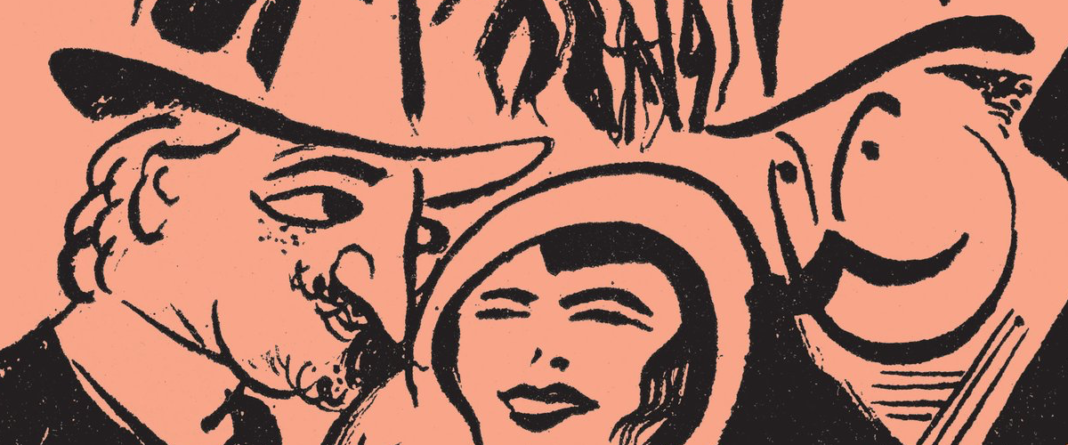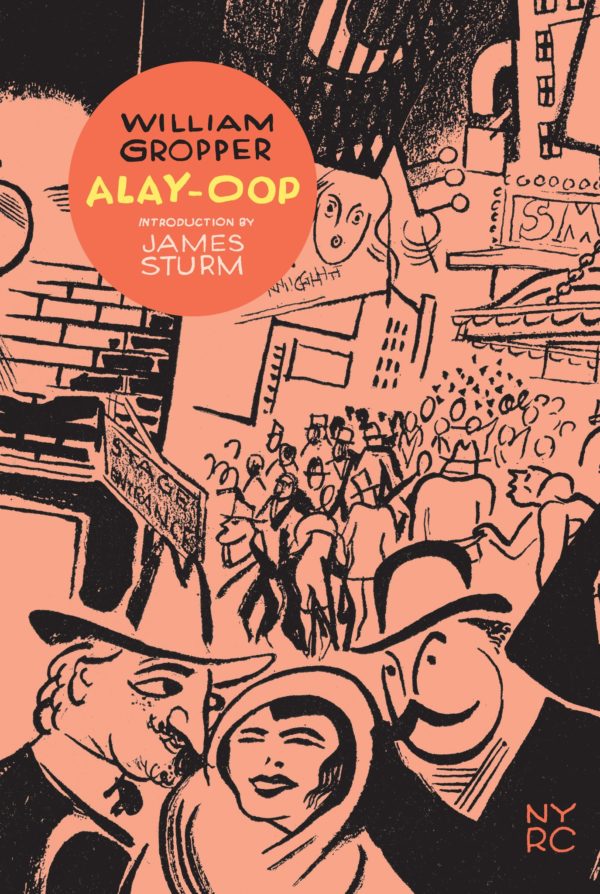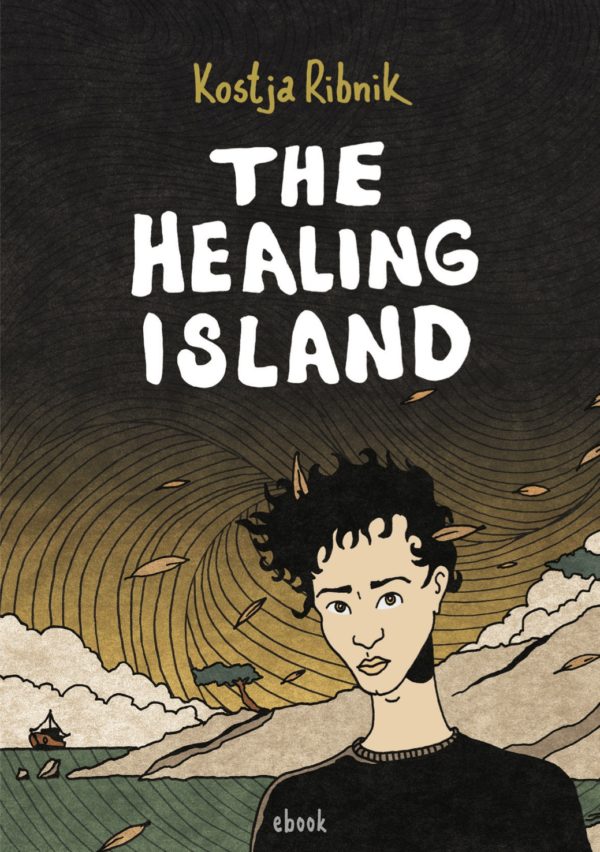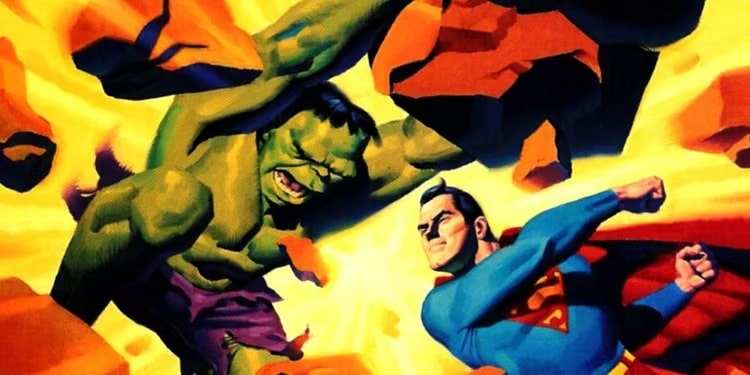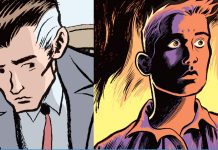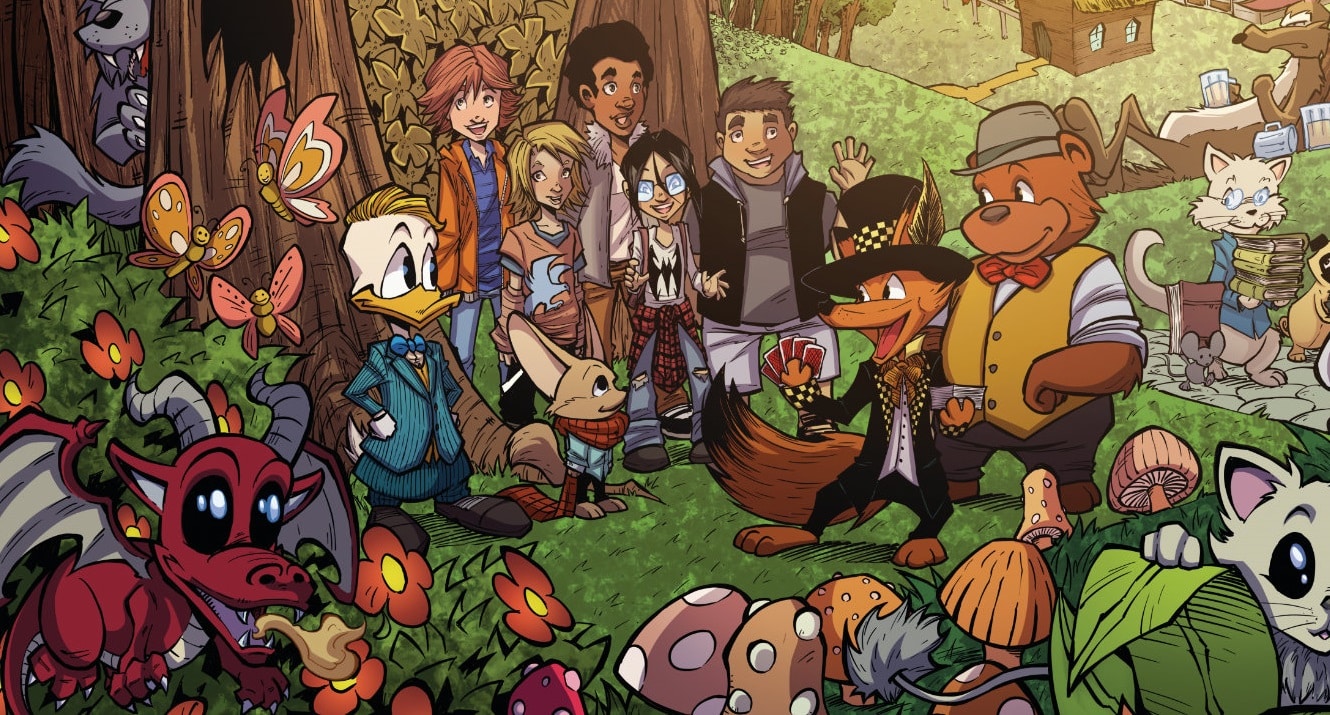Alay-Oop
By William Gropper
New York Review Comics
William Gropper’s 1930 graphic novel Alay-Oop predates its actual form — “graphic novel” — by decades, but as a prehistoric example of the development of the form, it stands out 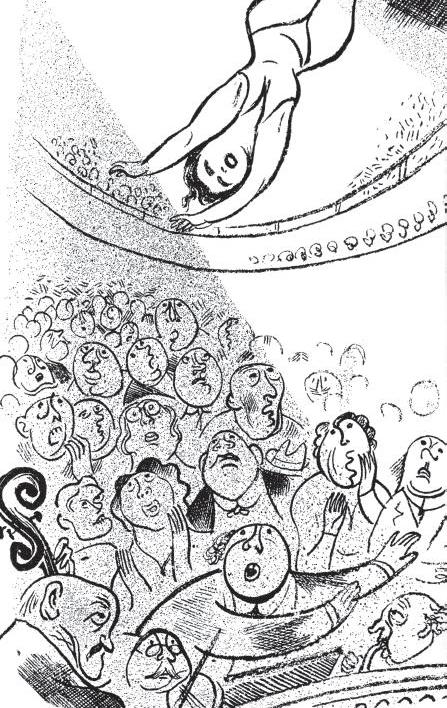
Following the lives of two trapeze artists, a man and a woman, Alay-Oop juxtaposes the graceful contortions and flights of their stage work with their personal lives. There’s no indication that they are in a romance, and their evenings on the town after work are shared with a singer who follows them on stage. If the trapeze fellow has any designs on his partner, the singer is quicker to state his own and Gropper follows the three through their lives, in which the personal and the professional lines become blurred, but not in the way you would expect.
Alay-Oop is really the story of the woman, whose art requires her to fly free but also rely on a partner. That’s a balance mirrored in real lives, even those of us who aren’t trapeze artists, and with our efforts come varying states of contentment and paranoia. For a woman in 1930, there were expectations that accompanied even the most carefree of public personas, and Gropper portrays the duality of this experience, and is clearly on the woman’s side, evoking empowerment as the final answer to the problems she faces.
Gropper made his living illustrating magazines and books (he was also a painter shown in galleries and museums) and his style is typical of the rounded, loose-lined work that you typically see in that era — think Ludwig Bemelmans or most things out of the New Yorker. Gropper isn’t stuck in one mode, though, and he’s able to let his lines glide through the aerial scenes and converge evocatively when depicting cityscapes. Alay-Oop was his only graphic novel, but it shows a natural ability for sequential storytelling and stands as a good representation of not only the early sophistication that was possible in comics storytelling back then, but of Gropper’s unrealized potential for growth in the form.
The Healing Island
By Kostja Ribnik
Modesty Comics
This comic by Sarajevo-based cartoonist Kostja Ribnik is a few years old, but I only recently became aware of its existence at the same time I happened upon Modesty Comics, a publisher and distributor working to get comics from the ex-Yugoslavian region out into the world. Based in the UK, though with a branch in Belgrade that publishes 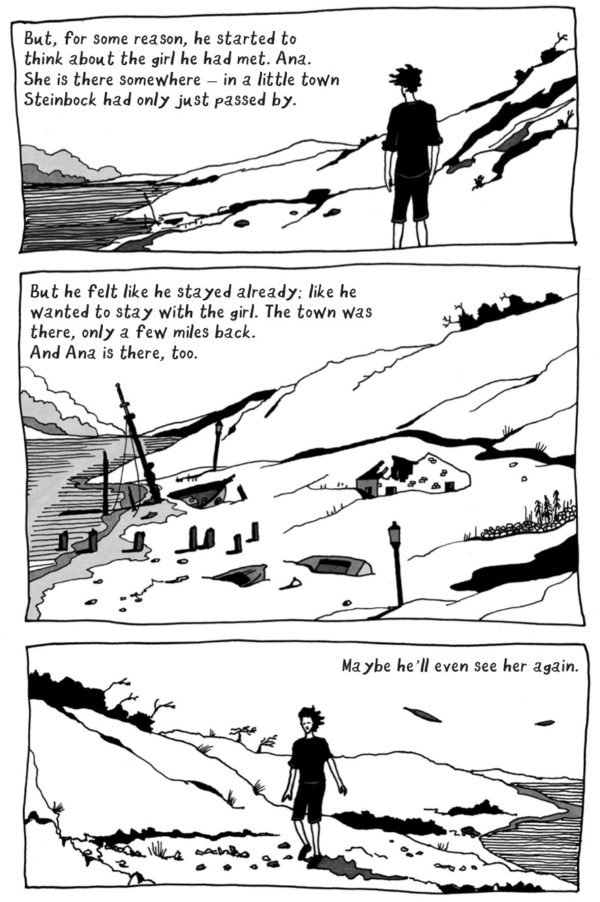
Steinbock is a solitary resident of Vienna who never leaves his city, but has made a trip to a distant island to purchase a car that reminds him of the one he took on family trips years before with his parents. In fact, all the surroundings of the island bring back sensory memories of those days, and he feels a connection with the place as he meets Ana, the person who is selling him the car.
Ana offers the temptation to stay for the night and experience the town and though Steinbock has other plans, fate doesn’t really care and he ends up sidetracked from life as he has planned it out. With a number of sweet surprises in store, meaningful encounters and intense sensory disruptions that only end up heightening his connections, The Healing Island reads like part slice of life, part surrealistic magic realism that ends up helping Steinbock find what is missing. He becomes a whole person thanks to his initial decision to buy a car out of some sense of nostalgia.
Steinbock is a bit of lost soul, solitary for sure, but not unwilling to engage, not combative to other humans. He has the room and potential to grow, and the willingness to let things happen organically, making for a pleasingly zen comic. Ribnik hints that the story is based on real events, but regardless its engaging Local Hero vibe hits just the right level of sweetness that leads to a charming conclusion that addresses the connections between community, companionship, and artistic growth.


